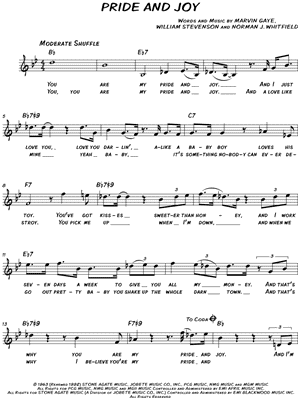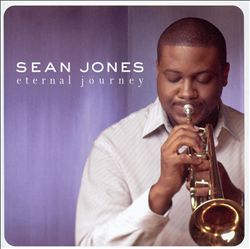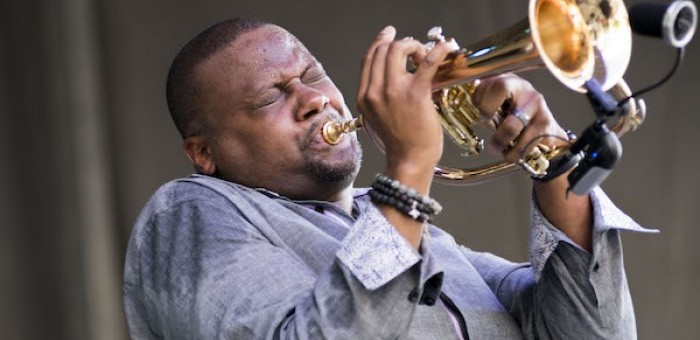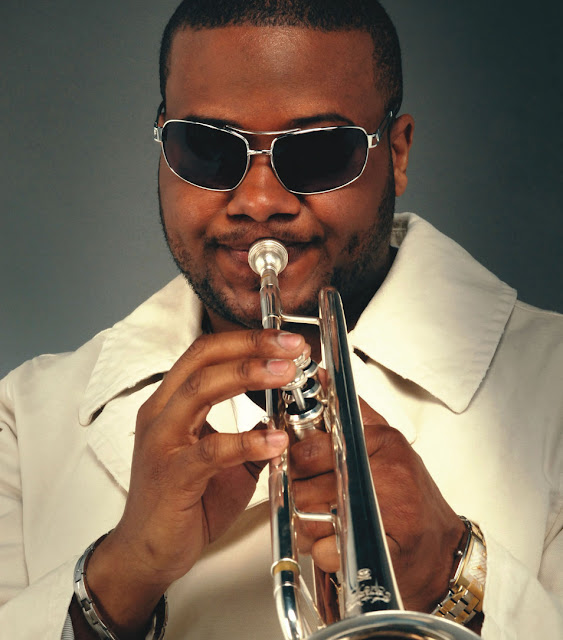
SOUND PROJECTIONS
AN ONLINE QUARTERLY MUSIC MAGAZINE
EDITOR: KOFI NATAMBU
SUMMER, 2021
VOLUME TEN NUMBER TWO

MARVIN GAYE
Featuring the Musics and Aesthetic Visions of:
JUNIUS PAUL
(July 10-16)
JAMES BRANDON LEWIS
(July 17-23)
MAZZ SWIFT
(July 24-30)
WARREN WOLF
(July 31-August 6)
VICTOR GOULD
(August 7-13)
SEAN JONES
(August 14-20)
JESSE MONTGOMERY
(August 21-27
CHANDA DANCY
(August 28-September 3)
KAMASI WASHINGTON
(September 4-10)
FLORENCE PRICE
(September 11-17)
DANIEL BERNARD ROUMAIN
(September 18-24)
ALFA MIST
(September 25-October 1)
https://www.allmusic.com/artist/sean-jones-mn0000310458/biography
Sean Jones
(b May 29, 1978)
Artist Biography by Matt Collar
Trumpeter Sean Jones is a firebrand musician with a bent toward muscular post-bop. Born in Warren, Ohio, in 1978, Jones began playing trumpet in the fifth grade, and by high school had developed a strong interest in jazz, especially the music of legendary trumpeter Miles Davis. Gigs at local jazz clubs and performances with the Cleveland Jazz Orchestra followed, and Jones ultimately enrolled in the music school at Youngstown State University in Ohio. Graduating with a bachelor's degree, Jones then earned a Master's degree from Rutgers University. Since that time, Jones has performed with a variety of name musicians, including Joe Lovano, Frank Foster, and others. He is also a member of the Lincoln Center Jazz Orchestra and a professor at Duquesne University in Pittsburgh, Pennsylvania. He released his debut album, Eternal Journey, on Mack Avenue in 2004. Gemini and Roots followed in 2005 and 2006, respectively. In 2007, Jones featured various vocalists including Gretchen Parlato on Kaleidoscope. Two years later, he released his fifth Mack Avenue release, the ambitious The Search Within. In 2011, Jones returned with No Need for Words, an album loosely conceptualized around the idea of love and the various ways it can be expressed.
https://musicians.allaboutjazz.com/seanjones
Sean Jones
For the remarkable composer/trumpeter/educator/activist Sean Jones, the pursuit of Jazz is a most serious endeavor. Not just in terms of mastering the art form, but in its fullest meaning and purpose socially, philosophically and spiritually. Deeply influenced by his immersion in Gospel music in the church as a youth, Sean had an epiphany at the age of 19 while he was a student at Youngstown State University. That awakening occurred - as it has for so many serious-minded individuals both inside and outside of music - with his first hearing of the magnificent John Coltrane’s masterpiece A Love Supreme.
“I was driving in my car at the time and I had to pull off the road. All at once, everything just came together for me. My past, my present, my future. I knew the course I needed to pursue.”
Always a devout and focused young man, Sean sang and performed as a child in the choir at St. James Church of God in Christ in his hometown of Warren, Ohio. Originally a drummer, he discovered Jazz and the trumpet at ten years old upon hearing Miles Davis – specifically Kind of Blue and Amandla.
“Miles is probably the single most powerful influence on me as an artist. His overall vision, the way he changed with the times, the purity of his sound.”
Committing himself seriously to the instrument, the gifted young musician was also fortunate to have studied privately with the eminent teacher and great trumpeter Esotto Pellegrini. Perfecting technique through his studies, Sean was also developing his ears in the longtime Jazz tradition of absorbing the artistry of the masters through listening.
“Woody (Shaw) and Freddie (Hubbard) were first and second for me. And then there was Clifford (Brown), who I had to go back and discover through those two men.” He also cites Wynton Marsalis, whose personal work ethic and ability to break barriers had a deep effect on the emerging artist.
“When I saw Wynton’s picture on a classical album, I knew there were no limitations on me; everything could be within my grasp.”
Five years later, after receiving his Master’s Degree from Rutgers University (where he studied under the renowned Professor William Fielder, who also taught Marsalis) Sean had a 6-month stint with the Lincoln Center Jazz Orchestra. Wynton offered Sean a permanent position as lead trumpeter and Jones remained there until 2010, participating in two recordings.
During those years, Sean started touring and performing regularly with his own ensembles and began his longtime relationship with Mack Avenue Records, for whom he has just released his seventh recording: im.pro.vise = never before seen. A highly respected and in-demand musician even while at Rutgers, Sean was prominently featured with a number of artists, ranging from the esteemed to the legendary. These included recordings and/or performances with Charles Fambrough, the Fort Apache Band, Joe Lovano, Chico O’Farrill, Illinois Jacquet, Jimmy Heath, Frank Foster, Nancy Wilson, Dianne Reeves, Gerald Wilson and Marcus Miller.
The relationship with Miller led to another highly impacting experience when Sean was selected by Miller, Herbie Hancock and Wayne Shorter for their Tribute to Miles tour in 2011. As A deeply respectful man, Sean was humbled by their decision to place him in such an exalted position.
“I have so much reverence for those men, so I asked them how I could best contribute to this music. Without hesitation and in one voice they said: ‘Lead….that’s what we hired you to do.’ That brought it all together for me.”
Having already left his position with the Lincoln Center Jazz Orchestra, Sean decided that it was time to make his own unique contribution to the spectacular legacy of Jazz, and the trust and support of those masters cemented his resolve. Following that tour, Sean has been unwaveringly focused upon what he can do to further the living organism of Jazz expression.
Education is also a major element in Sean’s ongoing activities. Shortly after joining the LJCO he began teaching at Duquesne University in his adopted hometown of Pittsburgh, where he is currently Associate Professor of Jazz. In 2012 he also became Professor of Trumpet at the Oberlin Conservatory of Music. In addition, master classes and clinics are a regular part of his activities, providing more than a dozen annually all around the world.
Despite this intense level of activity, Sean also serves as Artistic Director of both the Pittsburgh and Cleveland Jazz Orchestras, overseeing their annual four concert and six concert series, respectively. Equally committed as an activist and advocate, Sean is focused upon trying to organize the various Jazz orchestras all over the country to offer this glorious art form in as rich, substantive and compelling a manner as possible.
His current performance focus is upon the quartet on his latest CD, who have been working together since 2007 – with pianist Orrin Evans, bassist Luques Curtis and drummer Obed Calvaire.
“I feel that this music at its most profound demands that combination of the essential forces of spiritual energy, raw essence and group synergy. That’s our goal.”
But Sean is also looking toward projects with new and larger ensembles, including orchestras. In addition, he’s planning on more forays into the world of Western classical music, while working on solidifying his pedagogy and increasing his lecturing and writing activities.
Clearly a powerfully committed, heavily focused and deeply spiritual man, Sean taps the energies of his youthful vigor (he turns 36 on May 29) with a serious study of philosophy – especially that of 13th century theologian and mystic Meister Eckhardt; and Don Miguel Ruiz, whose vision is drawn from the ancient wisdom of the Toltec native people of Southern Mexico – to fuel the pursuit of his expansive and generous vision.
This remarkable gentleman sums up his perspective for his music – and his purposes – in straightforward and honest fashion.
https://www.sean-jones.com/bio-1-1
Sean is a musical chameleon and is comfortable in any musical setting no matter what the role or the genre. He is equally adept in being a member of an ensemble as he is at being a bandleader. Sean turned a 6-month stint with the Jazz at Lincoln Center Orchestra into an offer from Wynton Marsalis for a permanent position as lead trumpeter, a post he held from 2004 until 2010. In 2015 Jones was tapped to become a member of the SFJAZZ Collective where he was a member until 2018. During this time, Sean has managed to keep a core group of talented musicians together under his leadership forming the foundation for his groups that have produced and released eight recordings on the Mack Avenue Records, the latest is his 2017 release Sean Jones: Live from the Jazz Bistro.
Sean has been prominently featured with a number of artists, recording and/or performing with many major figures in jazz, including Illinois Jacquet, Jimmy Heath, Frank Foster, Nancy Wilson, Dianne Reeves, Gerald Wilson and Marcus Miller. Sean was selected by Miller, Herbie Hancock and Wayne Shorter for their Tribute to Miles tour in 2011.
He has also performed with the Cleveland, Pittsburgh and Youngstown Symphony Orchestras as well as Soulful Symphony in Baltimore and in a chamber group at the Salt Bay Chamber Festival.
Sean is also an internationally recognized educator. He was recently named the Richard and Elizabeth Case Chair of Jazz at John Hopkins University’s Peabody Institute in Baltimore. Before coming to Peabody, Sean served as the Chair of the Brass Department at the Berklee College of Music in Boston.
Photographer: Jimmy Katz
Musician: Sean Jones
https://www.sean-jones.com/new-blog
August 13, 2021“I am excited to be named Chair of the Jazz Studies Program at The Peabody Conservatory.
It is one of the most difficult decisions I’ve had to make in my life. It ultimately boiled down to a paraphrase of a quote from Donald Byrd that my good friend, Jerome Jennings shared with me... “Do not go where the work is being done. Go where the work needs to be done.” The Berklee College of music is the greatest institution that I’ve worked at to date and it is an incredibly difficult decision to leave an amazing faculty, staff, and student body. However, something inside my soul is telling me to go to Baltimore.
Go to the oldest and most prestigious Conservatories in the country and ensure that Jazz, America’s indigenous art form, is not only represented, but celebrated! It is my desire that Peabody realizes it’s potential to be one of the greatest curators of America’s music and that it is a beacon of light, not just in the already bright areas in Baltimore, but in those areas that need it to be a light. In my life, I have always been spirit led.
This is not a religious thing... it is a spirit thing, knowing my place on this earth and what I’m called to do. Once again, I’m answering that call and look forward to the work ahead!
My work at Peabody will be dedicated to Prof William Fielder, the first African American trumpeter in the Chicago Civic Orchestra who always reminded me to “Never be satisfied, but always gratified! Move onward and upward!”
#doyojob"
Around two decades ago, I told myself that I wanted to go into education.
That I wanted to be the teacher in the classroom that not just talked the talk... but walked the walk... being the embodiment of what my students aspired to be... two decades later, I’m humbled to stand on one of the greatest stages on earth and in front of some of the greatest young minds in music. To say that I’m thankful, doesn’t quite cut it...
I thank the creator for blessing me beyond measure and entrusting me with these souls. I also thank the folks at Carnegie Hall for taking a chance on this kid from Warren, OH...
To NYOJazz... I am a better educator and man because of you!
To my teachers... thank you for inspiring me at a young age to continue your work... and to my God... get the glory out of my life...
Time to take the stage! #doyojob @nyo.usa"
Trumpet rising: Sean Jones' international emergence could help lift Pittsburgh's jazz scene
Some of us know where we're going in life earlier than others. Take Sean Jones.
He is first trumpet with the Lincoln Center Jazz Orchestra, a friend of Wynton Marsalis, a three-time winner of Downbeat Magazine's "rising star" award, the leader on five CDs that have earned international notice, and a professor of jazz studies at Duquesne University.
All by the age of 30.
But then, he started young.
"I was one of those kids that went against the grain -- even if it meant being totally secluded from the the popular crowd," Jones says in his strong, often emphatic voice on the phone from St. Louis, where he's touring in support of his just-released CD, "The Search Within."
- With: Brian Hogans, piano; Tim Green, sax; Luques Curtis, bass, and John Davis, drums
- When and where: Tuesday, 8 p.m., Cabaret at Theater Square, 655 Penn Ave., Downtown.
- Tickets: $20
- More information: 412-456-6666
"As far back as I can remember, I was always different. I was always off doing some kind of science thing or whatever when the rest of the kids were looking at what was on TV.
"When I was listening to music, even when I was 9 or 10, I was listening to what my friends were listening to. I said, 'That does nothing for me. I don't know, I just don't like it.'
"When I heard jazz, I said, 'Wow that's kind of cool. I can think about this. There's something to it.' And none of my friends dug it," he adds with a laugh.
His interest made him an outcast, he says. "I liked that I was an outcast. Because that means that I was my own person, and I noticed that people who were really successful were their own person. You have to be exceptional. "
Jones grew up in Warren, Ohio, near Youngstown. The church introduced him to music -- he spent countless hours singing gospel. In the fifth grade, he took up trumpet, inspired by Miles Davis. He studied privately with numerous teachers, and by the time he entered high school he was landing gigs at the Bop Stop, a popular Cleveland club.
Then came an undergraduate degree in classical trumpet from Youngstown State's highly regarded music program, a stint teaching elementary school in Ohio, and graduate work in jazz at Rutgers in New Jersey with famed trumpet professor William Fielder.
At Rutgers, he started to penetrate the New York scene, gigging and recording with established vets like Charles Fambrough and Joe Lovano. His own sound was emerging, a mixture of flawless classical technique, gospel roots and immersion in his "holy trinity" of trumpet players from the bebop and post-bop eras: Clifford Brown, Freddie Hubbard and Woody Shaw.
"Clifford Brown has a tremendous amount of exuberance and joy in his sound," Jones says. "And it's clean. There's a sophistication in it. No wasted notes. Definite purpose.
"Freddy Hubbard, I like the thickness and the swagger of his sound. He plays kind of like he's flirting with you a little bit. It's this real masculine, sort of robust, round tone.
"From Woody Shaw, I've taken the harmonic sophistication."
2004 was a particularly good year for Jones. Marsalis tapped him for a spot in the Lincoln Center Jazz Orchestra. The group makes three monthlong tours throughout the world each year. Michigan-based Mack Avenue Records released Jones' first CD as a leader, "Eternal Journey."
In 2005, saxophonist Mike Tomaro, head of jazz studies at Duquesne, hired Jones as an artist-in-residence. The next year, Jones joined Duquesne as a professor. That brought him to Pittsburgh, a move that has positive implications for a city with a great jazz past and a more uncertain jazz future.
Jones haunts the gigs and jam sessions at local clubs until the small hours. A stocky, broad-shouldered 6-footer who oozes confidence as he strides onto a stage, he connects with his audience with a few well-chosen comments. He raises, lowers or swivels his horn with a flourish and mostly lets his music do the talking.
"I am one of those kind of musicians that needs to be around the music. For two reasons: One, because it feeds me. Just to be able to communicate through music on that basic human level, to be able to communicate love, feeds me so much energy that you could not believe.
"Also I feel a very intense obligation to be out and supporting this music that has saved my life. If I'm not at a club supporting what's going on, I don't feel like I'm worth my salt."
Despite the much-publicized closing of venues from the Crawford Grill to Dowe's on Ninth, Pittsburgh still keeps alive a club scene that may be perpetually wing-and-a-prayer but crackles with excitement -- Little E's, Roger's Humphries' Thursday night jams at CJ's, Gullifty's, Tuesday nights at the Backstage Bar, and the Monday night jams at Ava in East Liberty, to name just a few.
"To say the scene is better or worse, I'm not sure that's the proper way to describe it," Jones says. "Things change. Things morph. I think they go through cycles of reconstruction. And I think that the scene in Pittsburgh has gone through a cycle of reconstruction in the past few years.
"Some of the younger musicians have taken a leadership role, such as Howie Alexander, Tony Campbell, Tony DePaolis -- these new guys that are in town are starting to lead their own bands. Dwayne Dolphin is one of them. They've been around for a while. But they've sort of been sidemen. These guys are now leaders."
Jones notes that jazz has found a home beyond the clubs, and that foundations and non-profits are underwriting new works. He specifically mentioned the Cultural Trust, the Multicultural Arts Initiative and the Heinz Endowments.
"I think that the scene is morphing into a more educated, more diverse scene that incorporates more young people, which is good. It's exciting and rejuvenating or revitalizing, what's going on. There's going to be a huge turn in the scene in the next few years."
First Published April 20, 2009, 1:00am
https://en.wikipedia.org/wiki/Sean_Jones_(trumpeter)




















